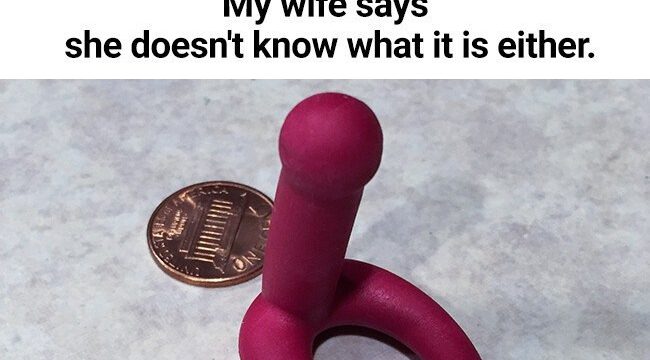Doctor Warns About the Dangers of Not Washing Your Hair Enough
Washing your hair is something most of us do regularly, but how often is enough? With so many trends and expert opinions out there, it’s easy to feel unsure about your hair care routine. Some people swear by washing every day, while others barely touch the shampoo bottle. If you’re unsure about whether you’re washing your hair enough, it’s time to hear from the professionals—because your scalp’s health might be at stake.

Is Washing Your Hair Every Day Too Much?
For many, nothing beats the feeling of freshly washed hair. However, daily washing might actually be doing more harm than good. Dr. Joshua Zeichner, a dermatologist and the director of cosmetic and clinical research at Mount Sinai Hospital, explains that washing your hair every day can strip it of natural oils. These oils are essential for keeping your scalp healthy and your hair moisturized.
“Over-washing can make the hair dry, brittle, and lead to scalp irritation,” Dr. Zeichner warns. The more you wash, the more you risk disturbing the balance of the natural oils your scalp needs. While daily washing may make you feel clean, it could be damaging your hair over time.
The Importance of Washing Your Hair Regularly
On the other hand, skipping too many washes can be just as harmful. Dr. Jenny Liu, a board-certified dermatologist, mentioned on TikTok that going too long between washes can have negative effects. “You should never go more than a few days without washing your hair,” she says. This runs counter to the popular belief that you can ‘train’ your hair to not get greasy by washing less frequently.
When you avoid washing for too long, dead skin cells, sebum (natural scalp oils), and dirt can accumulate. This buildup can lead to the growth of Malassezia yeast—a type of fungus that contributes to dandruff and inflammation. Dr. Liu adds, “Sebum sitting on your scalp causes oxidative stress, leading to inflammation, which is a poor environment for hair growth.” Simply put, a clean scalp is essential for healthy hair.
Why Washing Too Often Can Also Be Harmful
Although keeping your scalp clean is crucial, washing too often can also have drawbacks. Perry Romanowski, a cosmetic chemist and co-founder of The Beauty Brains, explains that wet hair swells and becomes more vulnerable to damage. “The process of moving shampoo around in your hair can damage the cuticle, the outer layer of hair,” Romanowski says. When the cuticle is damaged, hair appears dull and is more prone to breakage.
For those with fragile hair, frequent washing can lead to long-term damage. Dr. Elizabeth Hughes, an integrative dermatologist, mentions, “Some people with very fragile hair may need to wash their hair every other week to avoid damage.” Ultimately, the ideal washing frequency depends on your hair texture, how fragile it is, and how oily your scalp tends to be.
Finding Your Ideal Hair-Washing Frequency
There isn’t a one-size-fits-all answer to how often you should wash your hair. The ideal frequency varies depending on your hair type, lifestyle, and scalp health. If your scalp is oily or you exercise often, washing every day or every other day may be necessary. However, people with drier scalps or curly hair may benefit from washing less often.
Kasey Bertucci, co-founder of Salon 120 West in Boston, suggests that those with oily scalps should wash their hair every two to three days, whereas people with curly or textured hair can wait five to seven days between washes. The American Academy of Dermatology even recommends washing just once a week or every other week for those with tightly curled or textured hair.
Why Your Scalp Matters More Than You Think
The health of your hair is closely linked to the health of your scalp. Ignoring your scalp—whether by washing too much or too little—can lead to problems like hair loss, dryness, and irritation. If you’re experiencing thinning hair, Dr. Liu emphasizes the importance of keeping your scalp clean to encourage growth. “Healthy hair starts with a healthy scalp,” she states.
Pay attention to your scalp’s needs. If it’s itchy or flaky, that could indicate buildup that needs to be addressed. On the other hand, if your scalp feels dry or tight after washing, you may need to reduce how often you shampoo.
Expert Hair-Washing Tips for Different Hair Types
- Thin or Fine Hair: Those with fine hair may find that their scalp gets oily faster, which means more frequent washing is needed—ideally every other day. However, avoid products with ingredients like dimethicone, which can weigh down the hair and lead to buildup.
- Curly or Textured Hair: People with curly or textured hair should wash less often to retain natural oils. Using sulfate-free shampoos and deep conditioners can help maintain softness and prevent breakage.
- Color-Treated Hair: For dyed hair, frequent washes should be avoided to preserve the color. Opt for sulfate-free products, as over-washing can cause color to fade more quickly.
- Dandruff-Prone Scalps: Anti-dandruff shampoos shouldn’t be used daily. Dr. Liu recommends using them two to three times a week to let the active ingredients work without overly drying the scalp.
What Happens If You Don’t Wash Your Hair Enough?
Not washing your hair regularly can lead to more than just greasy roots. Buildup of oils, sweat, and pollutants can irritate your scalp, clog hair follicles, and result in conditions like dandruff or seborrheic dermatitis. In the long term, neglecting to wash your hair can hinder growth, as an inflamed scalp isn’t conducive to healthy follicles.
Dr. Zeichner explains, “Not washing your hair often enough can lead to problems like scalp infections, odor, and excess buildup, which blocks hair follicles and impacts hair health.”
Conclusion: Finding the Balance for Healthy Hair
The key to healthy hair is striking the right balance between washing enough to keep your scalp clean and not overdoing it to avoid dryness and damage. Everyone’s hair is unique, so it might take some experimentation to find the perfect routine.
Listen to your scalp and hair texture. If your scalp gets oily quickly, consider washing more often. If your hair feels dry and brittle, try reducing the frequency of shampooing. Remember, scalp care is just as crucial as hair care—keeping your scalp clean and healthy is the foundation for strong, beautiful hair.





